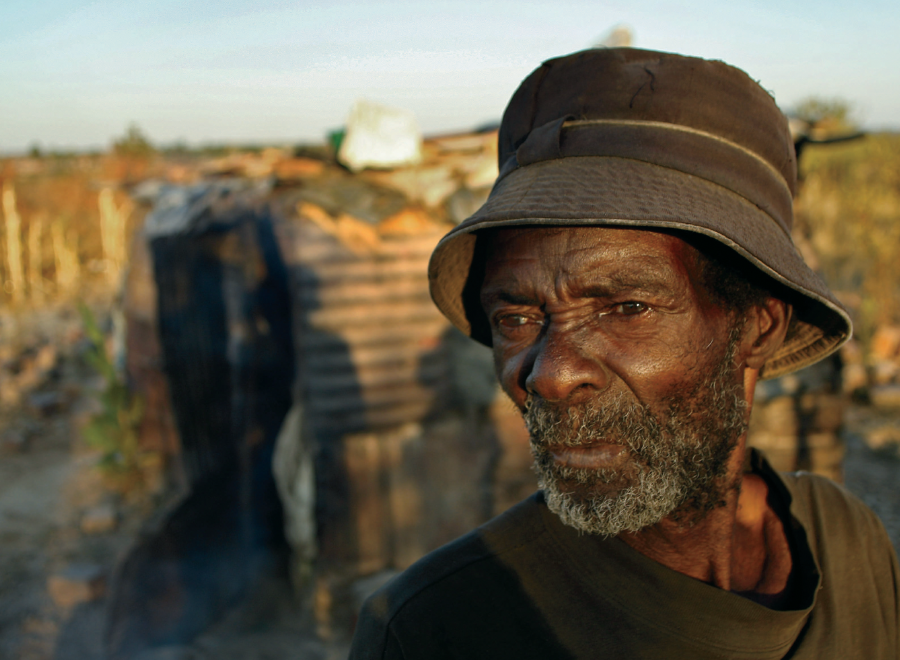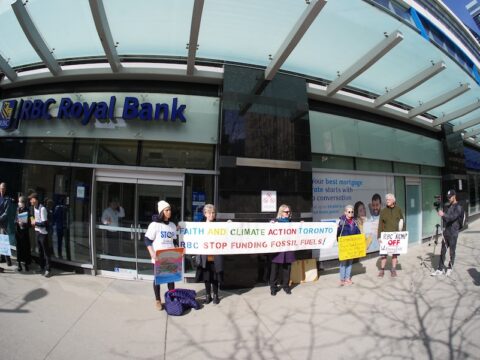To international aid workers, it’s a coping strategy. But to the people of the Nkayi district of southern Zimbabwe, it’s baboon food, plain and simple. Humanitarian aid jargon is irrelevant when you are preoccupied, day in and day out, with sheer survival.
For Sigida Moyo, the wild nuts, roots, tubers and leaves displayed on the table nearby is the difference between life and death for her extended family of 11. Together with several hundred other local Ndebele subsistence farmers, Moyo has come to this place, a local school, to verify that her name is on a list to receive food aid donated by the United Church and Canadian Foodgrains Bank. She comes from the village of Samasi, a two-hour walk away. “Because of poor rains, I wasn’t able to harvest anything this year, and we are hungry,” she says. A woman in her early 70s, Moyo holds up a thin, coarsely veined arm as evidence of her own weight loss.
You may unsubscribe from any of our newsletters at any time.
It is early October 2008. I’ve come to this part of Zimbabwe, called Matabeleland, with three Foodgrains Bank officials. Our objective is to monitor projects providing food aid and building local food security. A United Church partner, Christian Care, is our host.
Two years ago, the United Church engaged the Foodgrains Bank to help Christian Care respond to a disaster in the making. Mismanagement and failed economic policies by the government of President Robert Mugabe have caused Zimbabwe’s economy to totally collapse. Fixed prices on staples combined with hyperinflation have created chronic food scarcity and a flight of capital from the country.
Most stores, supermarkets and even the informal markets are 90 percent empty, offering limited supplies of locally grown vegetables. Only a small minority of Zimbabweans with plenty of cash or good connections can find food in any measure. The result is a humanitarian crisis of massive proportion. The United Nations estimates that without emergency food aid, more than five million Zimbabweans could face starvation in the first three months of 2009.
For the United Church and the Foodgrains Bank, the Christian Care project is historic. At more than 9,000 tonnes, it involves the largest shipment of food aid — maize (Zimbabwe’s staple), beans, cooking oil and a corn-soy blend — ever undertaken by the Foodgrains Bank with a single partner. At a cost of $7 million, it represents the biggest-ever United Church investment in a Foodgrains-related initiative. (The United Church contributed $650,000 of its equity in the Foodgrains Bank. The balance consists of equity donated by other Foodgrains members and matching funds from the Canadian International Development Agency.)
But historical significance is far from the minds of the people gathered here in the schoolyard at Nkayi. They expect food, and some wonder why we haven’t brought any. “When will you bring the food you promised?” Linah Dube, another elderly farmer, asks me. Dube is worried about the four orphans in her care. Her daughter, the children’s mother, has just died after a long illness.
Nighttime is the worst, she says. The children go to bed hungry and crying. “I sometimes go to my neighbours and ask for sudza (a heavy dumpling made of boiled maize) so they can go to sleep with food in their bellies. Sometimes they give me some, sometimes not. They have their own children to feed,” she adds.
When Dube tells me she has lost seven other daughters, I surmise the probable cause. As if unremitting hunger wasn’t enough to contend with, HIV/AIDS is marauding through 15 to 18 percent of Zimbabwe’s population.
Through a translator, I try to explain to Dube that deliveries will begin in two weeks. But all I see in her eyes is fear that those remaining in her care will perish. I feel my anger rise. The food should have been delivered months ago. But last June, in the lead-up to presidential elections fraught with intimidation and violence, the Zimbabwean government suspended the field operations of all non-governmental organizations (NGOs) in the country.
The Mugabe government, infamous for abusing its own citizens, accused NGOs of supporting the opposition Movement for Democratic Change and said all aid operations must cease pending investigation. Christian Care and dozens of other NGOs, including the UN’s World Food Programme, were prevented from distributing the urgently needed food aid that was already in the country and stored in warehouses. Although the government, under intense international pressure, officially lifted the suspension for organizations running supplementary feeding and HIV/AIDS-related programs a week later, regional authorities continued to prevent Christian Care and others from resuming normal operations.
In the intervening months, tens of thousands of Ndebele people were pushed closer to starvation. The telltale signs were clearly visible among those gathered in Nkayi. Children seemed lethargic and spent most of their time sitting, standing or lying down. On the basis of a visual survey, Foodgrains Bank staff member Alden Braul, an expert on food aid interventions, estimated that 70 to 80 percent of the adults were showing signs of muscle atrophy.
When asked, small-scale farmers like Moyo and Dube blame drought for the food shortages they are facing. Indeed, for many years the Nkayi region has experienced inadequate rainfall, causing crop failures. One farmer told me that 1985 was the last year local rainfall patterns were normal.
But lack of rain isn’t the only reason that household granaries are empty. What Moyo and Dube don’t acknowledge (or won’t admit out of fear of persecution) are the political and economic underpinnings of Zimbabwe’s current food security crisis. In 2000, in a politically motivated and utterly reckless attempt at land reform, Mugabe gave most of the country’s successful, white-owned commercial farms to ex-soldiers and political cronies. Lacking the knowledge, equipment or capital needed to farm, they let hundreds of thousands of hectares languish. In short order, Zimbabwe’s robust and much-vaunted agricultural sector was reduced to near ruin.
For decades, neighbouring countries counted on Zimbabwe’s annual surpluses of maize and other crops to supplement their own food supplies.
Now, the only reliable imports from Zimbabwe are steady streams of refugees. An estimated two to three million have fled to South Africa, Botswana, Zambia and other neighbouring states.
Even if they wanted to flee, impoverished farmers like Moyo and Dube do not have the resources to do so. They’ll stay put, wait for the promised food aid and hope they can coax a crop of maize from the parched earth next season.
***
This story first appeared in The United Church Observer’s March 2009 issue with the title “‘When will you bring food?’”













